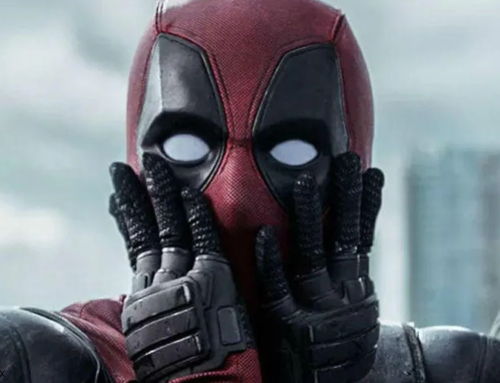“You cannot escape the responsibility of tomorrow by avoiding it today.”
Abraham Lincoln
With protestors storming the U.S. Capital – some of which breaching the outer doors and freely strolling the U.S. Senate floor – as surreal and unprecedented backdrop, I sit down to organize a sketch of Alphacution’s outlook for the year ahead, starting with a very wide lens:
- The U.S. economy – much like the rest of the other “developed world” economies – is naturally weaker than the meticulously curated employment and productivity numbers suggest. Technology adoption (from workflow automation to social media distraction), growing debt burdens, ossified resource allocation practices, cross-region labor arbitrage, deteriorating infrastructure, and other factors all converge to deteriorate “life, liberty and the pursuit of happiness” for a growing portion of the population. The COVID pandemic of 2020 – and however long it remains disruptive throughout 2021 as vaccines are being rolled out – acts as an accelerant of many of these factors. Ours is a deteriorating version of capitalism. Symptoms emblematic of the stage of this deterioration show up in our politics…
- As proof of its central and ongoing role to avoid the “responsibility of tomorrow” and allow moral hazards to continue to infect a more optimal allocation of resources, Alphacution expects the U.S. Federal Reserve (Fed) will maintain its current zero-interest rate policy and continue to expand its balance sheet to support public safety net initiatives as well as longstanding government operating deficits throughout 2021. This is not a courageous leap of prediction. These days, zero is always the best price…
- The actual and perceived persistence of this seemingly bottomless Fed support (being mimicked by other major central banks around the world) has the impact of creating a floor on capital markets prices and a cap on capital markets volatility, as it has done most potently since the global financial crisis of 2008-2009. Truth be told, this is a phenomenon that has required increased potency (much like that of an opioid addict’s needs) going as far back as the Greenspan years, beginning in the late 1980’s.
- Like the Ultimate Fighting Championship’s (UFC) “Octagon,” interest rate policy, aggressively interventionist monetary policy, ubiquitous and easily distributed technologies, zero-commission brokerage models, addicted and “zombified” customers, and other factors act like a “safety cage” around equity, listed derivative, and increasingly popular digital asset markets. Frictionless, increasingly-gamified, and the increasingly casino-like atmosphere of these markets will continue to fuel periodic “melt ups” of an incumbency of incumbents helmed by the most colorful characters with the most fantabulous narratives. Subjected to a gusher of information, human nature gravitates towards extremes. Today, our capital markets are a very exciting place to be…
- Integrated within all this, our friends, Joe Gawronski (President, Rosenblatt Securities) and Larry Tabb (Head of Market Structure Research, Bloomberg Intelligence), have pointed out that off-exchange stock trading recently achieved majority or near-majority share of total U.S. stock trading around year-end 2020. Meaning: At year-end 2020, and for the first time ever, more shares traded on “dark” trading venues than on traditionally “lit” trading venues, like the New York Stock Exchange (NYSE) on a single day. Alphacution believes that this is largely – if not, totally – beyond the knowledge and understanding of the public. (These mechanics are also likely outside the knowledge and understanding of many institutional investors.)
- Alphacution also believes that there’s nothing short of a black swan event – a climate catastrophe or the whole of society descending into anarchy, for example – that’s going to materially change the elements of the status quo outlined above in 2021. But, of course, these black swans are the most difficult to predict. We do expect the factors that perpetuate a tilted playing field and challenge newer trading firms, asset managers, and other market players from scaling – complexity, wealth and power – will continue to support prevailing themes, including concentration risks…
- Given all this as additional plumage to the stark opening backdrop, here are some of Alphacution’s specific expectations for the year ahead:
- After delays to repair its tarnished image, potential legal liabilities, and likely it’s preferred valuation, Robinhood will successfully complete its IPO. There are too many King John’s looking to monetize their stakes in the democratizer of finance to tolerate excess delays. Silver lining: We will get access to new data. We should see the veil of opacity withdrawn to expose various operational and account data for Robinhood that will shed new light on retail order flow, including (potentially) information on the progress of fractional share trading.
- Meanwhile, during Robinhood’s image rehabilitation, the retail brokerage (and wealth management) landscape remains in motion. Firms like Stash Financial, WeBull, Tastyworks and others will attempt to steal some of Robinhood’s white-hot attention and thunder. Already, we see Stash Financial commercials featuring millennials with accents from all corners of the globe contemplating their first giggly steps into the investing world.
- In parallel, TD Ameritrade (Schwab) and E*Trade (Morgan Stanley) will attempt to lure Robinhood’s customers away with more confidence in operational resiliency adorned with their own games, virtual tchotchkes, and confetti bombs…
- Furthermore, Morgan Stanley – one of the few bulge bracket equity and option brokers keeping its nose above the water line – will internalize a chunk of E*Trades order flow, thereby taking a bite out of the retail flows currently purchased by leading (proprietary) wholesale market makers, including Citadel Securities, Virtu Financial, G1 Execution Services (a unit of Susquehanna International Group), and Two Sigma Securities (TSS). The impact of this will be most significant on Virtu (indirectly due to its lack of option market making) and TSS (due to its rank as the smallest of the top four wholesalers).
- Another factor in the payments for order flow (PFOF) gambit to keep an eye on in 2021 is Jane Street Group. With wholesalers’ “attractiveness” to retail brokers increasingly dependent on “price improvement” (as a mechanism to defend against the critique of and maximize the payment rates for PFOF), Jane Street’s scale and prowess in both cash and equity options could put it in a position to siphon retail flows from some or all of the current leading wholesalers.
- Speaking of PFOF, we may eventually learn that retail cryptocurrency trading has been set up to operate under a similar PFOF framework as stocks and options.
- The trend in the proliferation of new US equity exchanges will take a turn with the closing of at least one exchange in 2021.
- Finally, there will be continued concentration of power, profits and/or assets within the leadership of each of Alphacution’s strategy zones (i.e. – structural alpha, active management and passive management). In other words, firms like Citadel Securities (structural alpha), Two Sigma Investments (active management), and BlackRock (passive management) will continue to do well in 2021. This increasing concentration will force exits and consolidations in each zone. As a long shot prediction for 2021, Alphacution expects that we may see an acquisition of one of the few up-and-coming proprietary market makers (structural alpha zone) by a large quant shop (active management zone) in the year ahead…
Historian, John Emerich Edward Dalberg Acton – aka “Lord Acton” – is credited with the famous quote “Power corrupts, and absolute power corrupts absolutely.” Over the past several decades, our economic and political system has been tilted and distorted to the point where a thin veneer of the populace have risen to such a level of power and wealth as to live with impunity. It seems to me that to live long and unchecked in a state of impunity is to become drunk on that impunity.
Our system is not designed to be proactive or preventative. We have become too lazy to be bothered with renovation. Instead, we wait to react – or, over-react – to things that are obviously broken. What will break next?
Good luck out there.
Until next time…






